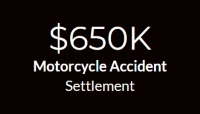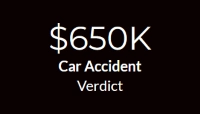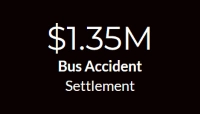Around 70% of individuals who held out for a better settlement after an accident received payouts that were $30,700 higher compared to those who accepted the insurance company’s first offer. This statistic underscores the importance of understanding what’s truly covered and what’s left exposed.
After an accident, relying solely on the at-fault party’s liability insurance might seem like a straightforward solution. But what does liability insurance not cover in the event of an accident? The reality is that many crucial expenses can fall outside the scope of typical liability coverage, leaving you with unexpected financial burdens.
What do you need to know before you settle your claim? Keep reading to learn more about liability insurance and how a lawyer can help.
What Is Liability Insurance?
Liability insurance is a term we often hear, but do we really understand what it means? In simple terms, liability insurance protects you financially if you’re found at fault for causing harm to someone else or their property. Whether it’s bodily injury or damage to possessions, this insurance kicks in to help cover the costs associated with legal fees, medical bills, and even accident settlements.
Liability insurance can also provide coverage for situations where you may be held responsible for actions outside your immediate control. For example, if you throw a party at your house and one of your guests gets injured due to negligence on your part, liability insurance can step in to handle any resulting claims.
What Types of Insurance Policies Include Liability Insurance?
Liability insurance is a vital aspect of protecting yourself and your assets in the event of an accident or injury. However, it’s important to understand that liability insurance does not cover everything. Knowing what is not covered can help you make informed decisions about additional coverage you may need.
Liability insurance can be included in various types of insurance policies, providing coverage for different situations. It’s worth noting that these are just some examples; there may be other specific policies depending on individual needs and circumstances. Here are some common types:
Auto Insurance
Liability coverage is typically a mandatory component of auto insurance policies. It helps pay for damages or injuries caused by an accident that you are at fault for.
With auto liability insurance, there are certain situations where coverage may be limited or excluded. For example, if a driver causes intentional harm or operates their vehicle under the influence of drugs or alcohol, their liability insurance may not provide coverage in those instances. Additionally, liability coverage typically does not extend to damage caused by natural disasters such as floods or earthquakes.
Homeowners or Renters Insurance
These policies often include liability coverage as well. They protect you if someone gets injured on your property and holds you responsible.
While homeowner’s liability insurance offers protection against accidents that occur on your property, there are exceptions to what it covers. For instance, injuries resulting from intentional acts or illegal activities committed by the homeowner are generally excluded from insurance coverage. Furthermore, some policies may limit specific liabilities like dog bites or swimming pool accidents.
Business Insurance
If you own a business, general liability insurance can protect against lawsuits. These can arise from accidents or injuries on your premises or as a result of your products/services.
Businesses rely on liability insurance to protect them from potential lawsuits arising from their operations; however, there are gaps in this type of coverage as well. Most notably, professional errors and omissions (E&O) claims related to negligence or mistakes made during professional services rendered often require separate specialized policies for adequate protection.
Professional Liability Insurance
Also known as errors and omissions (E&O) insurance, this type provides financial protection if clients sue due to negligence or mistakes made while performing professional services.
Umbrella Policy
An umbrella policy acts as additional liability coverage beyond the limits of other primary policies like auto or homeowners’ insurance. It offers broader protection and higher limits for added peace of mind.
Umbrella liability insurance provides additional protection beyond the limits of other existing policies. However, even umbrella policies have exclusions worth considering. These exclusions might include things like intentional criminal acts the insured party committed.
How Much Money Does Liability Insurance Provide?
This depends on the limits of your policy. Most policies have both a per-person limit and a per-accident limit.
For example, if you have a $100,000 per-person limit and a $300,000 per-accident limit, your insurer will pay up to $100,000 for each injured person, with a maximum payout of $300,000 for all injuries sustained in one accident.
Choosing adequate insurance coverage limits is important based on your financial situation and potential risks. While minimum state requirements may seem sufficient initially, they may not be enough to protect you fully in case of a serious accident.
The Importance of Understanding Your Liability Insurance Policy
Liability insurance is an essential form of protection that can safeguard you from financial ruin in the event of an accident. However, it’s not enough to simply have a liability insurance policy.
It’s crucial to understand what exactly is covered and what is not. By taking the time to familiarize yourself with your policy, you can avoid potential pitfalls and ensure that you have adequate coverage.
The exclusions are important to consider when reviewing your liability insurance policy. These are specific situations or damages that your policy does not cover.
What Is Covered by Liability Insurance?
Liability insurance provides coverage for various types of liabilities. It ensures that you don’t have to bear the full burden of financial responsibilities alone.
Bodily Injury Liability
Bodily injury liability means that if someone is injured on your property or as a result of your actions, your liability insurance can help cover various expenses. This includes:
- Medical expenses
- Rehabilitation costs
- Pain and suffering
- Loss of income
- Ambulance services
- Legal fees
Property Damage Liability
Property damage liability is another important component covered by this type of insurance. If you accidentally damage someone else’s property, such as their car or home, your insurer can provide compensation to repair or replace the damaged items.
Does Liability Insurance Cover Your Injuries and Property Damage?
Liability insurance is a crucial protection for individuals and businesses alike. It helps cover the costs of accidents that result in bodily injury or property damage to others. However, it’s important to understand that liability insurance does not provide coverage for every possible scenario.
One common misconception is that liability insurance will cover your own injuries and property damage in an accident. This is not the case. Liability insurance only covers the injuries and damages suffered by other parties involved in the accident.
So what happens if you’re involved in an accident and sustain injuries or damage to your property? In this situation, you would typically need additional coverage, such as personal injury protection (PIP) or collision coverage on your auto policy, to help pay for medical expenses or repair costs.
What Does Liability Insurance Not Cover in the Event of an Accident?
Liability insurance is designed to protect individuals and businesses from financial loss in the event that they are held legally responsible for causing harm or damage to someone else. While liability insurance provides essential coverage, it’s important to understand what it does not cover. You should be aware of several common exclusions when reviewing your policy.
While these are some common exclusions found in many liability policies, it’s important to read through your policy carefully and consult with an experienced lawyer if there are any areas of confusion or concern regarding what is covered and what isn’t.
Intentional Acts Exclusions
One important aspect to understand is the intentional acts exclusions. This means that if you intentionally cause harm or damage to someone or their property, your liability insurance will not cover those expenses.
Let’s say you have a disagreement with a neighbor and intentionally vandalize their car. In this situation, your liability insurance would not step in to pay for the damages because it was an intentional act on your part.
Liability insurance protects individuals from accidents and unforeseen events, not deliberate actions. It’s essential to remember that while liability coverage can provide financial protection for many incidents, intentional acts are typically excluded from its coverage.
Understanding these intentional acts’ exclusions is crucial for every policyholder. It helps manage expectations and ensures that you are aware of what situations may fall outside the scope of your coverage. Always read and understand the terms and conditions of your policy before assuming what it covers!
Workers’ Compensation Exclusions
In the event of an accident at your workplace where an employee gets injured, liability insurance does not cover their medical expenses or lost wages. Workers’ compensation insurance is specifically designed to provide coverage for employees in these situations.
Workers’ compensation functions differently from liability insurance because it is a no-fault system. This means that regardless of who is at fault for the accident, employees are entitled to receive benefits under workers’ compensation.
Workers’ compensation aims to ensure injured employees have access to medical treatment and financial support without going through a lengthy legal process. It protects both employers and employees by offering a streamlined system for handling work-related injuries.
It’s crucial for businesses to understand this exclusion so they can properly protect their employees and comply with legal requirements related to workers’ compensation insurance.
Automobile Exclusions
While liability auto insurance provides coverage for damages caused by an accident you’re at fault for, there are some situations where your policy may not cover you.
One common exclusion is when an accident occurs while the at-fault driver is using a vehicle for business purposes. If you’re using your personal vehicle for work-related tasks (for example, ridesharing) and get into an accident, your liability insurance may not cover vehicle damage. It’s crucial to check with your insurer about adding commercial or business auto insurance to ensure full coverage car insurance in these circumstances.
Additionally, if you use your vehicle in races or other competitive events, any damages from those activities would likely be excluded from liability coverage.
It’s worth noting that these exclusions can vary between different insurers and policies. Therefore, it’s essential always to review the terms of your specific policy and discuss any concerns or questions with your insurance provider directly.
Property Damage Exclusions
Suppose you accidentally cause damage to someone else’s property while performing a service or during an accident. In that case, your liability policy may not cover the costs of repairing or replacing the damaged property. This can include damage caused by faulty workmanship, negligence, or accidents.
It’s important to note that each policy may have different exclusions and limitations regarding property damage coverage. Some policies may offer limited coverage for certain types of property damage, such as damage caused by fire or explosion.
Reviewing your policy carefully is essential to ensure you have adequate coverage for potential property damage claims.
What Happens if the Person at Fault in an Accident Has No Insurance?
It’s a common and unfortunate scenario – being involved in an accident where the person at fault does not have insurance. So, what happens next? Well, it can be a complicated situation with potentially serious consequences.
If you are the victim of an accident caused by someone without insurance, you may be left to bear the financial burden yourself. This means that any medical expenses or property damage resulting from the accident will likely fall on your shoulders. Without insurance coverage from the responsible party, you may need to rely on your insurance policy or seek legal action to recover damages.
In some cases, if you have uninsured motorist coverage as part of your car insurance policy, this can help offset some of these costs. Uninsured motorist coverage is designed specifically for situations like this when dealing with drivers who don’t carry liability insurance.
However, even with uninsured motorist coverage in place, there are still limitations and restrictions on how much compensation you can receive. It’s important to review and understand your policy terms carefully to know what is covered and what is not.
If pursuing legal action becomes necessary due to the at-fault party’s lack of insurance coverage, consulting with a lawyer specializing in personal injury law is advisable. They can guide you through the process and help protect your rights while seeking fair compensation for your damages.
When Should You Contact a Lawyer?
While liability insurance can provide coverage in many situations, there may be instances where it falls short. This is when you should consider contacting a lawyer specializing in personal injury cases.
Injuries or Property Damage Aren’t Covered
If you find that your liability insurance does not adequately cover your injuries or property damage, or if the other party involved in the accident does not have any insurance at all, consulting with a lawyer can help. They’ll work to protect your rights and ensure that you receive fair compensation.
Disputes Over Fault or Amount of Coverage
If there is a dispute over who is at fault for the accident or the amount of coverage provided by your insurance, a lawyer can help advocate on your behalf. They’ll negotiate with the insurance company to ensure you receive fair compensation.
Serious Injuries or Long-Term Effects
If you have sustained serious injuries or are facing long-term effects from an accident, it is crucial to contact a lawyer. They can help assess the full extent of your damages and work to secure appropriate compensation for medical expenses, lost wages, and pain and suffering.
Legal Advice and Guidance
Even if you are covered by liability insurance, navigating the legal process can be complex and overwhelming. A personal injury lawyer can provide valuable advice and guidance throughout the process to ensure your rights are protected and you receive fair treatment.
Statute of Limitations is Approaching
Each state has a statute of limitations for filing personal injury claims. If this time is approaching, it is important to consult with a lawyer as soon as possible to ensure you do not miss out on any potential compensation.
How a Lawyer Can Help
Navigating the complexities of liability insurance can be overwhelming. That’s why having an experienced lawyer by your side is crucial if you find yourself in a situation where liability insurance doesn’t cover certain aspects of an accident. A skilled attorney will understand the intricacies of insurance policies and can help ensure that you receive fair compensation for any damages or injuries.
Knowledge of Insurance Policies
A lawyer can review your policy, identify any exclusions or limitations, and advise you on how to proceed. They can negotiate with insurance companies on your behalf, working towards a settlement that adequately covers your losses. They can also file a lawsuit and represent you in court if necessary.
Pursue Other Avenues of Compensation
In some cases, liability insurance may not be enough to cover all of your damages. A lawyer can help you explore other avenues of compensation, such as filing a personal injury lawsuit against the at-fault party or seeking coverage from other insurance policies, such as uninsured/underinsured motorist coverage.
Handle Legal Proceedings
If your case goes to court, a lawyer can represent you and handle all legal proceedings. They will have the necessary knowledge and expertise to present a strong case and fight for your rights.
Provide Peace of Mind
Going up against insurance companies and dealing with legal matters can be stressful. Having a lawyer by your side can provide peace of mind, knowing you have someone experienced and knowledgeable in your corner. They can handle the legal aspects of your case, allowing you to focus on recovering from any injuries or damages.
What to Ask Your Personal Injury Attorney About Liability Insurance
When it comes to navigating the complexities of liability insurance after an accident, seeking the guidance of a personal injury attorney is crucial. They can help you understand your policy and ensure you receive fair compensation for your injuries and property damage.
Here are some important questions to ask your personal injury attorney about liability insurance:
How Much Coverage Does the At-Fault Party Have?
It’s important to know the amount of liability coverage the at-fault party has. This will impact how much compensation you can potentially receive for your injuries and property damage.
Is There a Time Limit for Filing a Claim?
Most insurance policies have a time limit for filing a claim after an accident. Your attorney can help you understand this time limit and ensure that you file your claim within the given timeframe.
Can I Seek Compensation Beyond the At-Fault Party’s Policy Limits?
If your medical bills and other damages exceed the at-fault party’s policy limits, you may be able to seek additional compensation through your own underinsured or uninsured motorist coverage. Your attorney can guide you through this process.
How Will My Medical Bills and Property Damage Be Handled?
Your attorney can explain how the at-fault party’s liability insurance will handle your medical bills and property damage. They can also help you negotiate with the insurance company to ensure you receive fair compensation for these expenses.
What If the At-Fault Party’s Insurance Company Denies My Claim?
Unfortunately, insurance companies may try to deny or undervalue your claim. In this case, your attorney can represent you in negotiations with the insurance company or even take your case to court if necessary.
Can I Receive Compensation for Pain and Suffering?
In addition to medical bills and property damage, you may also be entitled to compensation for pain and suffering as a result of the accident. Your attorney can help you understand how this is calculated and seek appropriate compensation on your behalf.
Understand Your Rights
What does liability insurance not cover in the event of an accident? It depends on the specific type of accident and the insurance policy.
At the Law Offices of Fredric S. Masure, we’ve recovered millions of dollars for our clients. We’ll fight for you against the insurance companies. We assist with various types of personal injury cases.
We also understand that accidents don’t just happen between the hours of nine and five. We’re available when you need us.
Call for a free consultation today to discuss your case.





